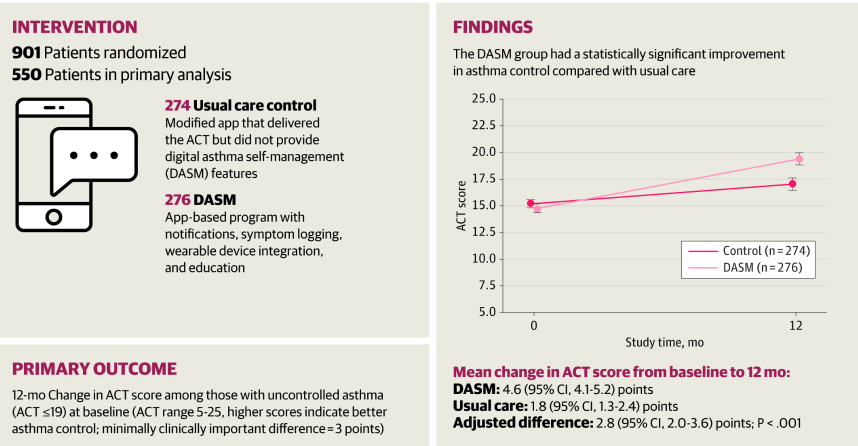Your guide to how tech is transforming health care and the life sciences
| Health Tech Correspondent |
|
|
Good morning health tech readers! Today, Doximity gets into the ambient scribe game, and a peer-reviewed big tech RCT. Reach me: mario.aguilar@statnews.com |
|
|
Business Doximity launches free AI scribe Doximity entered the fray with an ambient scribe it will offer for free to physicians, nurse practitioners, physician assistants, and med students. Scribes that use artificial intelligence to generate clinical notes are among the most adopted use cases for large language models in health care and startups developing such clinical-documentation tools have raised over $1 billion since 2023. But many of the top players like Abridge cost money, and Doximity's free option offers a HIPAA-compliant alternative for a clinician whose employer hasn't signed a deal. Like its other free products, Doximity is betting that its scribe can be another funnel that directs providers through its digital doors. The social network for clinicians makes money through subscriptions and by offering drug and device makers an advertising platform to reach health care professionals. The model has served it well: The company made a $223 million profit on $570 million in revenue during its fiscal year that ended in March. Read more from STAT's Katie Palmer here
research Apple and Elevance publish asthma study data 
A randomized clinical trial of a digital asthma intervention from Apple and Elevance Health offers compelling evidence that consumer wearables can help move the needle on health outcomes. I've been following the study since it was first announced in 2020, and a first paper on the results was just published last week in JAMA Network Open. Besides being a large RCT involving a big tech company, the study is significant because the researchers were deliberate in recruiting people with low income. People on Medicaid who started the study with uncontrolled asthma saw a clinically significant improvement in asthma control after 12 months. There are nuances and room for improvement: African American participants did not see similar improvement as others in the study. The authors promise a future paper that looks at health care utilization — an abstract presented in 2023 suggested the intervention decreased emergency department visits in the Medicaid population. More details in my story here
policy What Trump's AI Plan means for health care STAT's Brittany Trang writes: Yesterday, the White House released the long-awaited America's AI Action Plan. The overarching goal of the plan, as Trump's AI and crypto czar David Sacks said multiple times on a press call yesterday, is to recognize that "we're in an AI race" and "we want the U.S. to win that race." Broadly, the plan focuses on de-regulating AI and building up infrastructure to support domestic AI development. The plan outlines a recommendation to "establish regulatory sandboxes or AI Centers of Excellence around the country" for researchers, startups, and big tech companies to "rapidly deploy and test AI tools while committing to open sharing of data and results." These centers would be overseen by agencies such as the Food and Drug Administration with support from the National Institute of Standards and Technology. NIST is also supposed to launch domain-specific efforts in areas like health care, agriculture, and energy that would "convene a broad range of public, private, and academic stakeholders" to both accelerate developing and adopting "national standards for AI systems" and also measure how much AI improves productivity in those domains. Federally sponsored sandbox environments would bypass concerns from Congressional Republicans about Biden health tech officials' comments supporting the idea of similar "assurance labs" organized by the Coalition for Health AI. CHAI CEO Brian Anderson in an emailed statement said that the organization would "welcome the opportunity to collaborate" on AI standards with NIST. |
|
industry news Aidoc raises $150 million, OpenAI's preprint and more - Aidoc, which makes AI clinical decision support software, raised $150 million led by General Catalyst and Square Peg with participation from NVentures, chipmaker Nvidia's venture arm.
- The telehealth lobby took the opportunity to remind newly sworn-in DEA administrator Terry Cole that there still aren't permanent rules governing telehealth prescribing of controlled substances like buprenorphine, which is used to treat opioid addiction. Temporary rules adopted during the pandemic expire at the end of 2025 after being extended again last year. The Biden DEA proposed a solution before leaving office, but it's been criticized by industry, and the Trump administration is under no obligation to finalize those rules.
- OpenAI and Penda Health, a provider in Kenya, published a very interesting preprint describing a study of clinical decision support AI intended to help providers catch medical errors.
|
|
Check out more exclusive coverage with a STAT+ subscription | Read premium in-depth biotech, pharma, policy, and life science coverage and analysis with all of our STAT+ articles. |
|
What we're reading - Meta, Flo trial begins over period-tracking app's data sharing practices, The Record
- The peptide craze, Ground Truths
- Doctors are biased against higher-weight patients. Can nutrition education help them change?, STAT
|
|
Thanks for reading! More next time - Mario Mario Aguilar covers how technology is transforming health care. He is based in New York. |
| STAT, 1 Exchange Place, Boston, MA | ©2025, All Rights Reserved. | |
|



No comments